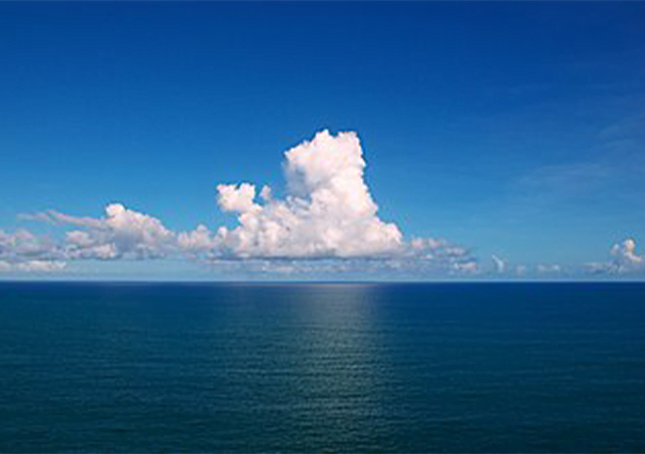Ocean

The ocean (also the sea or the world ocean) is the body of salt water which covers approximately 71% of the surface of the Earth. It is also “any of the large bodies of water into which the great ocean is divided”. These five oceans are, in descending order by area, the Pacific, Atlantic, Indian, Southern (Antarctic), and Arctic Oceans.
Saline seawater covers approximately 361,000,000 km2 (139,000,000 sq mi) and is customarily divided into several principal oceans and smaller seas, with the ocean as a whole covering approximately 71% of Earth’s surface and 90% of the Earth’s biosphere.[4] The oceans contains 97% of Earth’s water, and oceanographers have stated that less than 20% of the oceans have been mapped. The total volume is approximately 1.35 billion cubic kilometers (320 million cu mi) with an average depth of nearly 3,700 meters (12,100 ft).
As the world’s ocean is the principal component of Earth’s hydrosphere, it is integral to life, forms part of the carbon cycle, and influences climate and weather patterns. The ocean is the habitat of 230,000 known species, but because much of it is unexplored, the number of species in the ocean is much larger, possibly over two million. The origin of Earth’s oceans is unknown; oceans are thought to have formed in the Hadean eon and may have been the cause for the emergence of life.
There are numerous environmental issues for oceans which include for example marine pollution, overfishing, ocean acidification and other effects of climate change on oceans.
Extraterrestrial oceans may be composed of water or other elements and compounds. The only confirmed large stable bodies of extraterrestrial surface liquids are the lakes of Titan, although there is evidence for oceans’ existence elsewhere in the Solar System.
The phrases “the ocean” or “the sea” used without specification refer to the interconnected body of salt water covering the majority of the Earth’s surface. it includes the Atlantic, Pacific, Indian, Southern and Arctic Oceans.
As a general term, “the ocean” is mostly interchangeable with “the sea” in American English, but not in British English.[10] Strictly speaking, a sea is a body of water (generally a division of the world ocean) partly or fully enclosed by land.
The word “sea” can also be used for many specific, much smaller bodies of seawater, such as the North Sea or the Red Sea. There is no sharp distinction between seas and oceans, though generally seas are smaller, and are often partly (as marginal seas) or wholly (as inland seas) bordered by land.
